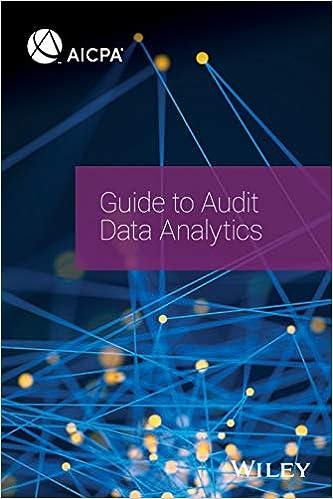Question
Howard Street Jewelers, Inc. Lore Levi was worried as she scanned the most recent monthly bank statement for the Howard Street Jewelers.1 For decades, she
Howard Street Jewelers, Inc.
Lore Levi was worried as she scanned the most recent monthly bank statement for the Howard Street Jewelers.1 For decades, she and her husband, Julius, had owned and operated the small business that they had opened after fleeing Nazi Germany during World War II. Certainly, the business had experienced ups and downs before, but now it seemed to be in a downward spiral from which it could not recover. In previous times when sales had slackened, the Levis had survived by cutting costs here and there. But now, despite several measures the Levis had taken to control costs, the businesss cash position continued to steadily worsen. If a turnaround did not occur soon, Lore feared that she and her husband might be forced to close their store.
Lore had a theory regarding the financial problems of Howard Street Jewelers. On more than one occasion, she had wondered whether Betty the cashier, a trusted and reliable employee for nearly 20 years, might be stealing from the cash register. To Lore, it was a logical assumption. Besides working as a part-time sales clerk, Betty handled all of the cash that came into the business and maintained the cash receipts and sales records. If anybody had an opportunity to steal from the business, it was Betty.
Reluctantly, Lore approached her husband about her theory. Lore pointed out to Julius that Betty had unrestricted access to the cash receipts of the business. Additionally, over the previous few years, Betty had developed a taste for more expensive clothes and more frequent and costly vacations. Julius quickly dismissed his wifes speculation. To him, it was preposterous to even briefly consider the possibility that Betty could be stealing from the business. A frustrated Lore then raised the subject with her son, Alvin, who worked side by side with his parents in the family business. Alvin responded similarly to his father and warned his mother that she was becoming paranoid.
Near the end of each year, the Levis met with their accountant to discuss various matters, principally taxation issues. The Levis placed considerable trust in their CPA because for years he had given them solid, professional advice on a wide range of accounting and business matters. So, it was only natural for Lore to confide in him about her suspicions regarding Betty the cashier. The accountant listened intently to Lore and then commented that he had noticed occasional shortages in the cash receipts records that seemed larger than normal for a small retail business. Despite Juliuss protestations that Betty could not be responsible for any cash shortages, the accountant encouraged the Levis to closely monitor her work.
Embezzlements are often discovered by luck rather than by design. So it was with the Howard Street Jewelers. Nearly two years after Lore Levi had suggested that Betty might be stealing from the business, a customer approached the cash register and told Alvin Levi that she wanted to make a payment on a layaway item. Alvin, who was working the cash register because it was Bettys day off, searched the file of layaway sales tickets and the daily sales records but found no trace of the customers layaway purchase. Finally, he apologized and asked the customer to return the next day when Betty would be back at work.
The following day, Alvin told Betty that he was unable to find the layaway sales ticket. Betty expressed surprise and said she would search for the ticket herself. Within a few minutes, Betty approached Alvin, waving the sales ticket in her hand. Alvin was stumped. He had searched the layaway sales file several times and simply could not accept Bettys explanation that the missing ticket had been there all along. Suspicious, as well, was the fact that the sale had not been recorded in the sales recordsa simple oversight, Betty had explained.
As Alvin returned to his work, a troubling and sickening sensation settled into the pit of his stomach. Over the next several weeks, Alvin studied the daily sales and cash receipts records. He soon realized that his mother had been right all along. Betty, the trusted, reliable, longtime cashier of the Howard Street Jewelers, was stealing from the business. The estimated embezzlement loss suffered by Howard Street Jewelers over the term of Bettys employment approached $350,000.
- Identify the internal control concepts that the Levis overlooked or ignored.
- Identify at least 5 internal controls that should be implemented to prevent/detect employee theft in a retail environment.
- What types of audit procedures might have flagged this theft? Describe in detail how you would use each procedure you recommend.
Step by Step Solution
There are 3 Steps involved in it
Step: 1

Get Instant Access to Expert-Tailored Solutions
See step-by-step solutions with expert insights and AI powered tools for academic success
Step: 2

Step: 3

Ace Your Homework with AI
Get the answers you need in no time with our AI-driven, step-by-step assistance
Get Started


